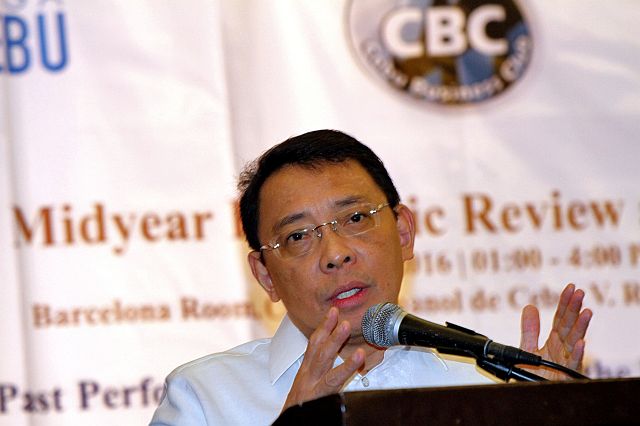BSP official cites factors that make country’s economy strong

GUINIGUNDO
(Conclusion)
WITH the Philippines recognized by the international financial organizations like the World Bank (WB) and the International Monetary Fund (IMF) as Asia’s rising tiger, a Bangko Sentral ng Pilipinas (BSP) official cites the factors that made the country’s economy resilient from the effects of the volatility and uncertainty of today’s global economy.
The Philippines is resilient today because of all the policies and structural reforms that have allowed competition to flourish, said Diwa Guinigundo, BSP deputy governor for monetary stability, during last Friday’s economic forum organized by the Cebu Business Club.
Competition
“When there is competition, the best is actually brought out. Competition brings out more productivity,” Guinigundo said.
The Philippine government, he added, has also been able to inspire business confidence by bringing down tariff walls and allowing foreign banks to transfer their technology and provide their services to the community, among others.
Demographics
The country’s demographics, he said, are also a plus factor to its resiliency. He said the Philippines has more working people, aged 15 to 65, compared to those below or above these numbers.
“Other countries have a problem with an aging population such as Singapore, Japan and Thailand. When you have an aging population, there are more people who depend on pensions and parental support,” Guinigundo said.
The Philippine economy grew on an average of 6.9 percent during the first half of 2016.
(READ FIRST PART HERE: How country turned from Asia’s sick man to region’s rising tiger)
Inflation
Guinigundo said he also saw a benign inflation because the average inflation rate for the first seven months of the year, which was at 1.4 percent, had been lower than the lower end of the 2-to-4-percent target.
Revenues are growing, but so is public spending, thereby, sustaining fiscal discipline, he added.
“At this time, it is important that the government continues to spend more because we have a very large infrastructure gap. The government needs to sustain the pace of economic growth. We have enough liquidity and credit in the economy,” he said.
Liquidity, GIR
As of June 2016, entry of total domestic liquidity went up by 12.4 percent and domestic credits or loans outstanding with commercial banks grew by 17.6 percent.
The country’s gross international reserves (GIR) by the end of July stood at $85.5 billion which translates to 10 and a half months of imports of goods and services, providing additional comfort for investors, creditors and debtors.
Infra spending
Despite this optimism, Guinigundo said the country will still face challenges ahead including the subdued global economic growth.
“If the global economy is not moving very well, our ability to export our products will be curtailed,” he said.
The infrastructure gap will continue to dampen the economic growth momentum, but if the government is able to sustain the 5 percent infrastructure spending, this problem can be abated.
Disclaimer: The comments uploaded on this site do not necessarily represent or reflect the views of management and owner of Cebudailynews. We reserve the right to exclude comments that we deem to be inconsistent with our editorial standards.
